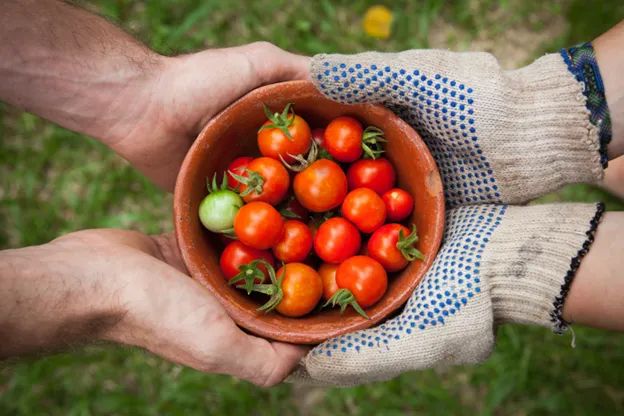BLOG
Transformative Coaching Journey: Life, Executive, Spiritual, and High-Flow - Discover Your Path

How to be More Generous
Generosity is voluntary, unselfish giving of time, money, attention, or other resources; generous people are especially willing to share their resources. Although a generous gift can benefit the giver, it’s mainly intended to help the recipient, and there isn’t necessarily any expectation of a return. The term “generosity” characterizes both the act of giving and the spirit of the gift. Generous acts can be as dramatic as anonymously donating millions of dollars to a hospital or as mundane as volunteering an afternoon at an animal shelter.
Generosity, especially anonymous generosity that probably won’t be reciprocated, may seem irrational under evolutionary psychology. However, this behavior may have evolved to promote cooperation in uncertain conditions (where it’s unclear whether a single meeting will blossom into a steady relationship) (Delton, Krasnow, Cosmides, & Tooby, 2011).
One (extreme) example of generosity is anonymously donating a kidney to a stranger. Here are some more examples:
● Helping a friend move into a new apartment
● Paying for the coffee of the person in line behind you
● Offering advice to a student hoping to break into your industry
● Paying vet fees to neuter and release your neighborhood’s stray cats
● Tipping your restaurant server more than the standard amount
● Doing one of your partner’s chores so they have time to relax during a busy week
● Leaving a book in your neighborhood’s Little Free Library (if there is one nearby)
How to Be a More Generous Person
You can incorporate generosity into your life in many ways. Finding a generosity practice that works for you and fits your budget and schedule is essential–you don’t have to deprive yourself or give up your boundaries to practice generosity. Equally, there’s no rule that you can’t benefit from your generosity toward others.
Here are several strategies you can try to practice more generosity:
Set aside a certain percentage of your income for charitable donations. This strategy is a staple of the effective altruism movement (created, in part, through the work of philosopher Peter Singer). Effective altruists act out of a rational belief in doing their best, and many choose high-paying careers to donate more money to life-saving organizations (Singer, 2015). This strategy will not suit everyone’s ethics and preferences, and the effective altruism movement continues to receive thoughtful criticism.
Look for mentorship opportunities in your workplace. Primarily, if a mentor devoted time and attention to helping you reach the position you occupy today, you might find it satisfying to thoughtfully pay that generosity forward–especially because, on average, people are less likely to pay forward generosity than greed (Gray, Ward, & Norton, 2014).
Volunteer for a meaningful cause. The example of volunteering at a soup kitchen on Thanksgiving is classic for a reason. You can also make a list of causes that are meaningful to you and do an internet search for organizations that work to advance those causes. As Howard Thurman said, “Don’t ask yourself what the world needs. Ask yourself what makes you come alive and do that because the world needs people who have come alive.”
Make time to listen to a friend who’s struggling. Congratulations—you're already practicing generosity if you make time to listen to your friends’ problems. Sometimes, even actions that seem minor, mundane, and automatic can be generous.
Immerse yourself in nature... or decorate your home with plants. In a 2009 study, some participants were shown pictures of natural settings or asked to sit in a room decorated with several plants (Weinstein, Przybylski, & Ryan, 2009). Participants in the “natural immersion” group were likelier than control participants to demonstrate monetary generosity to strangers (Weinstein, Przybylski, & Ryan, 2009). So, boosting your tendency toward generosity might be a literal walk in the park.
Commit. Promising to behave generously in the future may make you more open to unrelated opportunities to be generous.
Say no when you want to say no. As the saying goes, “You can’t pour from an empty cup.” Looking after your health and boundaries ensures that you can offer generosity when you want to and where it’s needed most and that you’re doing so from a place of joy and care rather than resentment.
In Summary
You are practicing generosity whenever you offer your valuable resources primarily to benefit someone else. You can be generous with time, money, possessions, attention, influence, and anything else you value. Generosity doesn’t have to be a sacrifice–instead, it can be a win-win situation that helps everyone involved, strengthens relationships, and makes the world (even a little bit) brighter.
References
● Delton, A. W., Krasnow, M. M., Cosmides, L., & Tooby, J. (2011). The evolution of direct reciprocity under uncertainty can explain human generosity in one-shot encounters. Proceedings of the National Academy of Sciences, 108(32), 13335-13340.
● Gray, K., Ward, A. F., & Norton, M. I. (2014). Paying it forward: generalized reciprocity and the limits of generosity. Journal of experimental psychology: General, 143(1), 247.
● Singer, P. (2015). The best you can do: How effective altruism is in changing ideas about living ethically. Yale University Press.
● Weinstein, N., Przybylski, A. K., & Ryan, R. M. (2009). Can nature make us more caring? Effects of immersion in nature on intrinsic aspirations and generosity. Personality and Social Psychology Bulletin, 35(10), 1315-1329.
Want to have a Growth Mindset?
886-779-3888
info@theelevatedintelligence.com
www.theelevatedintelligence.com

